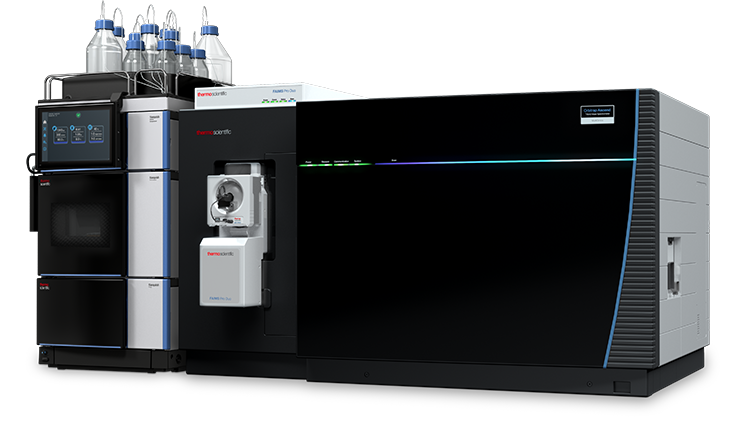PROVIDENCE, R.I. [Brown University] — A new mass spectrometer is coming to Rhode Island to advance research in cancer biology, aging, neurodegenerative diseases, immunology, infectious diseases and other fields.
With a $1.2 million grant from the National Institutes of Health, Brown University will acquire an Orbitrap Ascend Tribrid mass spectrometer — a state-of-the-art analytical tool that scientists can use to sequence and quantify proteins as they study cell biology underlying diseases.
The technologically advanced, highly sensitive instrument will enable single-cell protein analysis at a rapid speed, said Arthur Salomon, a Brown professor of molecular biology, cell biology and biochemistry.
“This single-cell analysis capability doesn't currently exist at Brown, and it’s essential for understanding the biology of disease,” he said, noting that analyses that currently require up to four hours will take about 30 minutes with the new technology, which will also offer unprecedented sensitivity and accuracy.
Salomon is the faculty director of Brown’s Proteomics Core Facility and is the principal investigator for the federal grant. Proteomics is the study of the structure and function of proteins, and the facility provides proteomics instruments and expertise to researchers from Brown and others in the Rhode Island scientific community.
The acquisition of the mass spectrometer will enhance the facility's capabilities and enable cutting-edge research in major disease areas, Salomon explained. For example, in support of the Legorreta Cancer Center at Brown, the instrument will benefit cancer biology research, where the ability to detect and quantify specific proteins and their modifications is critical for understanding disease mechanisms and developing new therapies. It will also assist with research at the Center on the Biology of Aging and the Carney Institute for Brain Science, where identifying disease-related biomarkers from samples is essential. In immunology and infectious disease research, Salomon said the system will enable the identification and quantification of immune system proteins and parasite- or pathogen-derived molecules, aiding in the development of vaccines and therapies.

Proteomics Core Facility Manager Nicholas DaSilva said that as the most capable shared mass spectrometer in the state, the tool will support the facility in its mission to provide well-maintained, state-of-the-art instrumentation and fundamental proteomics expertise to the Brown and Rhode Island scientific communities.
“This new grant brings rapid, highly sensitive and robust proteomic analysis capabilities to researchers in Rhode Island,” DaSilva said. “The PCF provides both consultative and bespoke proteomic services to principal investigators and research staff,” and the mass spectrometer opens new possibilities for research in fields as varied as evolutionary biology to metabolic syndrome.
In his role as facility manager, DaSilva will aid researchers in the design of proteomic experiments and the interpretation of resulting data so that researchers can focus on what he called “the fun part of understanding the biology of what the data means.”
Salomon estimates that in addition to future research endeavors, the new instrument will be used immediately by at least 17 researchers working on existing projects funded by the National Institutes of Health and the National Science Foundation.
Due to the time it takes to custom-build the mass spectrometer, ship it from Germany, assemble it and establish workflows, the system will likely be available for use within the next four to six months. The new mass spectrometer will use technologies developed by a national network of proteomic cores that will provide Rhode Island researchers with a highly sophisticated tool for protein analysis, Salomon said.
“This builds up critically important research infrastructure for Rhode Island,” Salomon said. “We will have a world-class facility for performing life science research.”
The work is supported by the National Institutes of Health under Award No. 1S10OD036295-01.